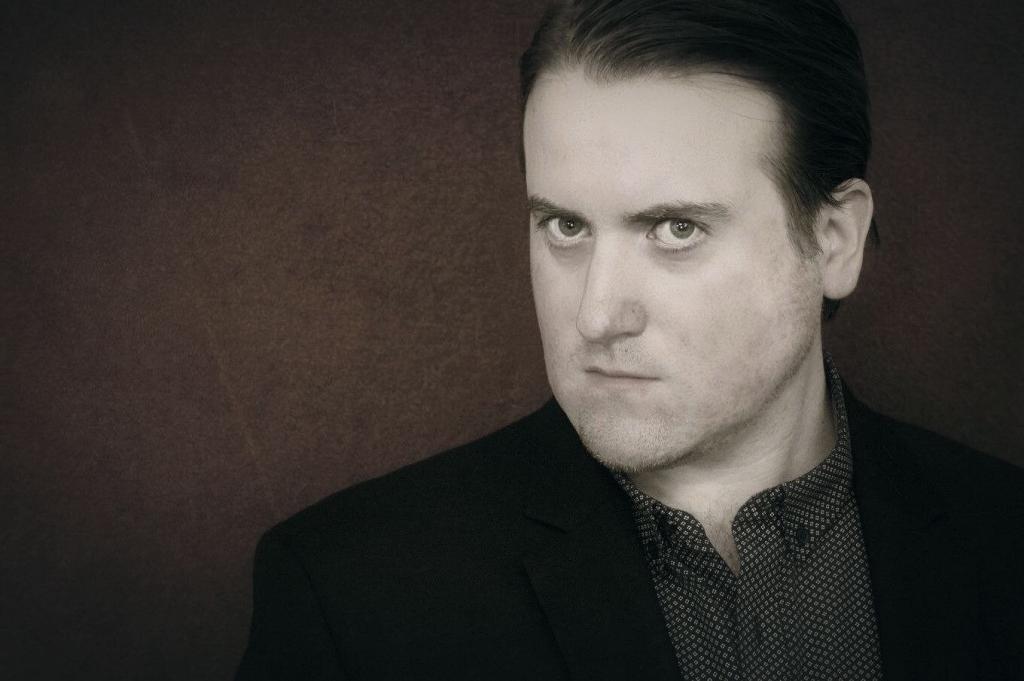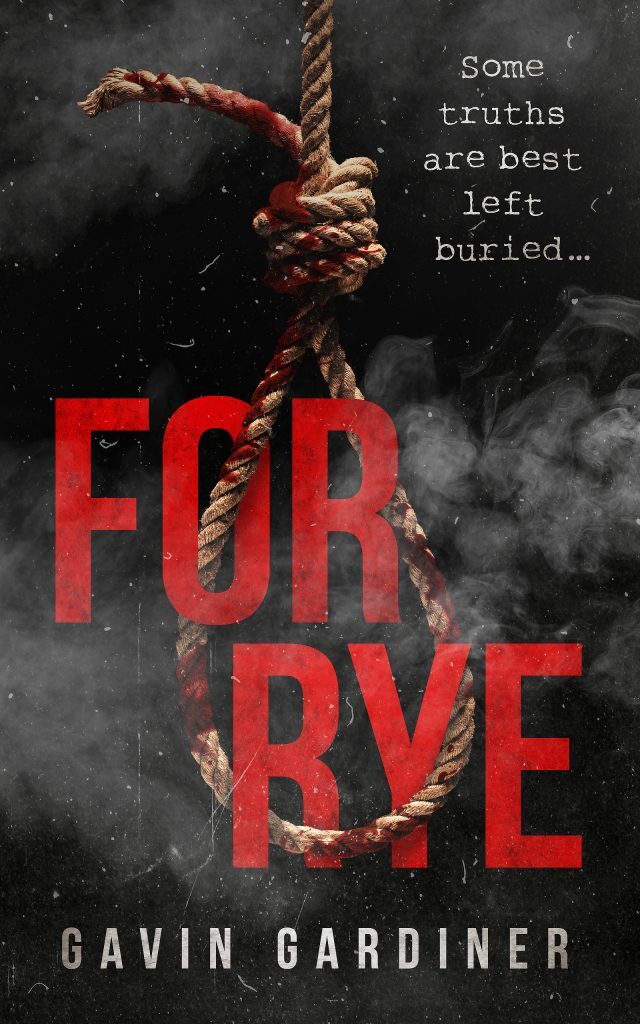Tell me a bit about yourself and what got you started in horror writing.
The truth is, I took to the writing game quite late. Although a life-long lover of horror, the idea to try my hand at writing my own novel didn’t come until I hit 30, and was the result of endless evenings dissecting the genre with my friend and horror analyst Ewan Rayner. Our conversations eventually led me to wondering whether the expanded understanding I’d developed from these challenging chats could translate into my own story.
In the three years it took to complete For Rye and find a publisher, I also wrote a novella, several short stories, and a bunch of non-fiction pieces, all of which have also been published in print and online. It’s funny how such an impulsive undertaking, born mostly of curiosity, can end up taking your life in a whole new direction. Guess I’ve got Ewan to thank (or blame) for that.

The story is set in a town called Millbury Peak. Can you tell me a bit about the town you created?
Millbury Peak is indeed my own invention. The most interesting kind of horror to me is that which festers behind closed doors, kept unseen behind a façade of normality. My mum summed up this kind of horror perfectly with two words: seems normal. I believe this brand of suspense resonates with us because there is an unspoken demand that we all go about our daily lives as functioning members of society, and to varying degrees bury our own writhing horrors within us. We must all seem normal.
Anyway, I had the feeling that a small country town would be the perfect setting for this high-standing, respected family whose lives are, in actuality, a living hell behind closed doors. The husband and father of the family, Thomas Wakefield, is the adored town vicar. He also happens to be the cause of the hell his family must endure.
Geographically, Millbury Peak effectively ‘replaces’ the town of Newark-on-Trent in the East Midlands, with the River Trent being overwritten by my fictional River Crove. The story opens in the city of Stonemount (again, made up) which replaces Nottingham, and I also created an island in the Outer Hebrides called Neo-Thorrach which features in the story. As you can see, I’m somewhat carving out my own fictional world within our own world. I’m afraid the reason for this is, at this time, strictly confidential.
The book sounds like a crossover between murder, psychological horror, and maybe the supernatural. Can you expand on that and give us some background on where that came from?
A crossover between murder and psychological horror is a great description! There are two mission statements about my work that I plan on sticking to for all my fiction. One of those is that my work will never be supernatural, and the other…well, that will be revealed in my next book.
Regarding my avoiding the supernatural: I want to make it clear that I have a deep love for supernatural horror. The Blair Witch Project is my all-time favourite horror (and perhaps film) and so it’s not that I lack an appreciation for it.
The decision to base everything I write in our own reality – on stuff that could happen – originates from my fascination with the human mind. Although the supernatural opens up exciting possibilities for a writer, where there are no limits to the things you can conjure up, I believe that no monster can be as terrifying as a monstrous human mind. This is probably why true crime has had such a resurgence and is so overwhelmingly popular at the moment: people are most disturbed by that which could be living next door, or the thought that even their own loved ones could become something truly horrifying.
Taking my work in this direction also compliments another interest of mine, which is moral complexity. This is something I feel had been lacking in horror for some years, and is somewhat becoming more prevalent, but not to the degree I want to explore it. When you read one of my books, there’s every chance the ‘goodie’ and ‘baddie’, in the traditional sense, will flip by the end of the story. I’ve thought a lot about our designations of good and evil – our insistence on drawing a line between us and them; our denial that the most despicable humans are not a different species, but in fact just a series of arbitrary conditions away from being you, me, or any of the cherished faces smiling warmly over the Christmas dinner table – and I have great interest in my work exploring not only what it takes to make a human monster, but also how slippery the spectrum of good and evil really is. Dealing solely with people, not ghosts or goblins, will allow me dig perversely deep into this theme.
We talk to a fair amount of new writers. What tips would you give yourself if you could go back to when you started based on what you know now?
Full disclosure: I’m a new writer! I only started my novel three years ago, but have worked my butt off in that time. I’ve remained mindful every step of the way as to what lessons I’ve had to learn, and have plans to start a YouTube series detailing these very lessons.
The list is endless, but if I could go back and give myself any advice, it would be that self-doubt is not only normal, but necessary. I really had a hard time with this, constantly doubting whether all my work was worth it, or whether the story was a waste of time. I still harbour massive doubts about every new writing project I take on, big or small, but I’ve come to the realisation that it’s that very same doubt that drives me to push my work as far as I can take it.
I was recently asked in another interview which part of the writing process I find the hardest. I answered (rather awkwardly) that they should all be as hard as each other. If any part of writing a book feels ‘easy’, or is a bit of a ‘break’ from the rest of the process, then you’re not working hard enough. It goes without saying that everyone is allowed to create something just for the fun of it and put that creation out there, but I always advise new writers to remain mindful of their objective. If that objective is to create something that’s going to truly grab a reader by the lapels and shake them, stay with them, and not let go, then they have to take a long, honest look at the effort they’re putting in and evaluate whether it’s enough to meet that objective.
So embrace the self-doubt, make it work for you, and never forget to push yourself and your work to the limits of your creativity and endurance. Greatness isn’t born out of nothing. Bleed for your work.
What/who are some of your major influences?
In terms of literature, Mary Shelley’s Frankenstein shattered my perceptions of what a novel could achieve. Also, I doubt I’d ever have written a book had Jeff Long’s criminally underrated and not-spoken-about-enough The Descent (nothing to do with the brilliant film) didn’t exist.
I was deep into movies before literature, and my list of cinematic influences is wildly expansive. I think it’s important for a writer to seek inspiration from as many mediums as possible, and I’ve found films to be a useful way of expanding my storytelling palette. Absorb enough films, and you need only close your eyes during the writing of a difficult scene to see how a cinematographer or director or lighting technician might handle its execution.
We live in a fortunate time when we have a positively bloating wealth of cinema and literature to look back on, and I’d urge writers of every genre to gorge on it all, and find ways to channel it into their own work.
Where can we get this book after release?
My debut horror novel, For Rye, will be available from April 9th through most major outlets such as Amazon, Waterstones, Barnes & Noble, and Foyles, and you can also pre-order it now. Visit my website to whet your palate and see if you’re up to the horrors to come:
What are you working on next?
I’m currently knee-deep in the planning of my next novel, Witchcraft on Rücken Ridge, a folk horror set up a mountain full of caves, cults, and cannibals. As for how the ‘witchcraft’ element ties into my previously-detailed mission statement of ‘no supernatural stuff’, you’ll just have to wait and see…

Want to dig in? Read the first 3 chapters for free
Website: www.gavingardinerhorror.com
Linktree: https://linktr.ee/GGardinerHorror

Tritone’s love of horror and mystery began at a young age. Growing up in the 80’s he got to see some of the greatest horror movies play out in the best of venues, the drive-in theater. That’s when his obsession with the genre really began—but it wasn’t just the movies, it was the games, the books, the comics, and the lore behind it all that really ignited his obsession. Tritone is a published author and continues to write and write about horror whenever possible.
